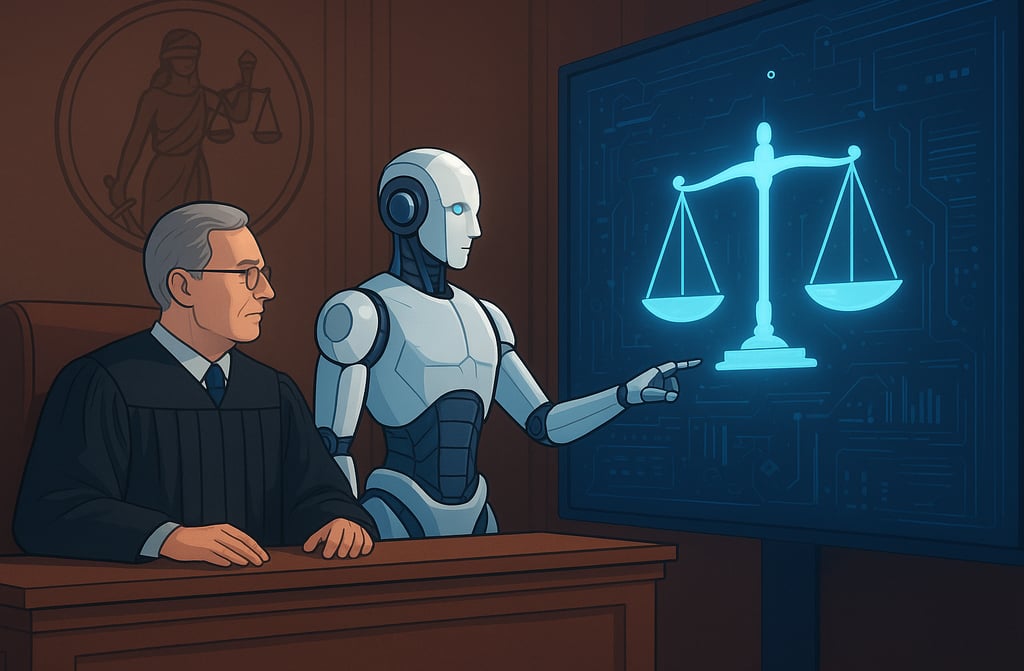AI in Justice: How Technology Can Support Legal Processes
The justice system has always been one of the most complex pillars of society. With countless documents, case histories, and evolving laws, courts and lawyers face the challenge of managing massive amounts of information while striving to deliver fair and timely decisions. Artificial Intelligence (AI) is stepping in as a powerful ally, not to replace human judgment, but to assist in making legal processes more efficient, accurate, and accessible.


How AI Is Used in the Justice System
Legal Research and Document Review
Lawyers and judges often need to sift through thousands of pages of legal texts, previous rulings, and regulations. AI tools can analyze vast amounts of data in seconds, finding relevant case precedents and highlighting key arguments. This allows legal professionals to focus more on strategy and less on paperwork.Predictive Analytics
AI can analyze past rulings and case data to suggest possible outcomes of new cases. While it cannot replace a judge’s decision, predictive analytics can help lawyers prepare better arguments and give clients more realistic expectations.Contract Analysis and Drafting
AI systems can automatically review contracts, identify risks, and even suggest improvements. This saves time for lawyers and helps prevent mistakes that could have serious legal consequences.Supporting Access to Justice
Not everyone can afford legal advice. AI-powered chatbots and platforms are beginning to provide basic legal guidance to people who otherwise wouldn’t have access to professional help. This brings more fairness and equality into the system.Fraud Detection and Criminal Investigations
AI can detect unusual patterns in financial transactions, helping investigators uncover fraud or money laundering schemes. It can also assist in analyzing digital evidence, such as emails or online activity, to support criminal investigations.
The Limitations and Ethical Concerns
While AI can greatly improve the efficiency of legal systems, it also raises important questions:
Bias in algorithms – If AI systems are trained on biased data, they may unintentionally reinforce discrimination.
Transparency – AI decisions need to be explainable. Lawyers, judges, and defendants must understand how a conclusion was reached.
Human judgment – Legal systems exist not only to enforce rules but also to consider compassion, context, and ethics. These are areas where human judgment remains essential.
Conclusion
AI in justice is not about replacing judges or lawyers—it’s about creating tools that can support them. By handling repetitive tasks, analyzing large datasets, and providing insights, AI has the potential to make legal processes faster, more transparent, and more accessible. However, careful oversight is needed to ensure fairness, prevent bias, and preserve the human values that are at the core of any justice system.